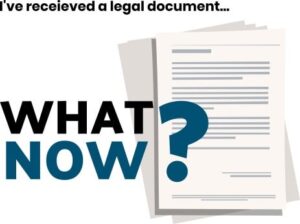What amounts to conversion?
Conversion can be committed in a variety of ways, including:
- intentionally destroying goods;
- changing the nature of the goods (e.g. converting apple juice into cider);
- taking possession of another person’s goods or making it impossible for a person to exercise their right to possession; (e.g. pawning a person’s jewellery);
- using a person’s goods without permission;
- unreasonably refusing to return goods after a demand;
- disposing of another person’s goods by selling or pledging them.
It is important to note that conversion can be applied to goods only, and not to land.
To determine the seriousness of the interference in a conversion matter, the court considers factors such as the:
- extent and duration of the defendant’s dealing with the goods;
- intent to deprive the owner of possession or control;
- defendant’s good faith;
- harm done to the goods; and
- inconvenience and expense caused.
Who can sue?
A person who wants to sue for conversion must show that they had an immediate right to possession at the time of the act of conversion.[1]
Elements of conversion
There are four elements to the tort of conversion.
1. Title to sue
There must be possession or right to possession of the property at the time of the conversion.[2] An owner of goods who has not yet transferred their right to immediate possession could sue, because they would have an immediate right to possession at the time of the conversion happening.[3]
2. Proof of demand by the plaintiff
There must be proof of demand by the plaintiff for the return of the chattel.[4]
3. Refusal to deliver them up
There must be a refusal by a defendant who has power to “deliver up” ( i.e. return) the chattel, at the time of demand.[5] The unauthorised sale and delivery of goods or chattels belonging to another individual constitutes conversion,[6] in which case the plaintiff may be able to sue both the buyer and the seller.[7]
4. Consequential damage
As a result of the defendant’s conduct, the plaintiff has suffered loss. The loss will usually be calculated on the basis of the value of the chattel.
Defences for conversion
An action in conversion may be defended on grounds including:
Necessity
There can be no conversion if the inference occurs in circumstances where consent could not be obtained, but where the interference was necessary. This defence will require consideration of the relevant facts of the case to determine whether the interference was in fact necessary, and the difficulty or impossibility in obtaining consent.
Abatement (also known as self-help)
A person may be entitled to enter the land of another or take other self-help measures, upon giving of due notice, to abate a nuisance which substantially interferes with enjoyment of one’s land. A person may lawfully retake goods that have been wrongfully taken out of that person’s possession.
Consent
There can be no conversion if the conversion occurs with the plaintiff’s consent. Consent can either be express or implied.[8]
Remedies for conversion
Damages for tortious causes of action such as conversion will generally be compensatory damages (i.e. damages that aim to put the plaintiff in the same position they would have been in, but for the conduct of the defendant). Remedies for conversion may include:
Damages
The primary remedy for conversion is damages. The courts will usually measure the full value of the chattel with the consequential losses.
Specific restitution
The remedy of specific restitution may be awarded where damages are inadequate.
Frequently Asked Questions
How is trespass different from conversion?
Many people confuse the tort of trespass to goods/chattels and the tort of conversion as both these torts involve an intentional interference with property rights. The main difference between trespass to goods and conversion is the degree of interference required to establish a cause of action for each tort.
Conversion occurs where a person uses or alters another’s personal property without consent. This interference must be so serious that the person wrongfully dealing with the property may be required to pay its full value.
Trespass to goods/chattels involves an interference with personal property that falls short of conversion. In cases of trespass, the person at fault may only be responsible to the extent of the damage caused.
How is detinue different from conversion?
Detinue differs from conversion in that detinue requires that the owner specifically requests return of the property and that request is refused.
For when you need help
If you are in a position where you property rights are being interfered with by another person, you may be entitled to bring a claim for conversion or other related causes of action. Contact Gibbs Wright Litigation Lawyers today for a free and confidential consultation to discuss your legal rights and options.
References
- Penfolds Wines Pty Ltd v Elliott (1946) 74 CLR 204 at 229; Casey Interiors Pty Ltd (in liq) v Specialised Roofing Systems Pty Ltd (1993) 115 FLR 96. ↩︎
- Penfolds Wines Pty Ltd v Elliott (1946) 74 CLR 204. ↩︎
- Wertheim v Cheel (1885) 11 VLR 107. ↩︎
- Pratten v Pratten [2005] QCA 213 [61]. ↩︎
- Ibid. ↩︎
- Claxton v Everingham (1884) 6 ALT 132; Glass v Hollander (1935) 35 SR (NSW) 304. ↩︎
- Wilkinson v King (1809) 2 Camp 335; Metcalfe v Lumsden (1844) 1 Car & Kir 309. ↩︎
- Pwllbach Colliery Co Ltd v Woodman [1915] AC 63; Lyttelton Times Co Ltd v Warners Ltd [1907] AC 476. ↩︎




